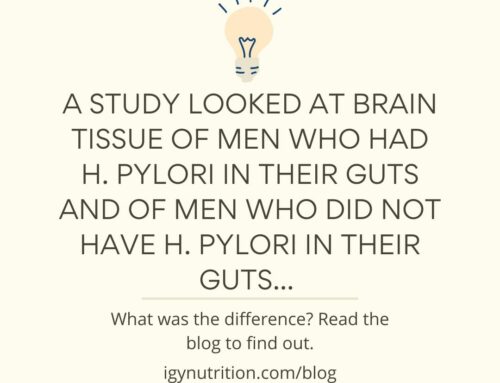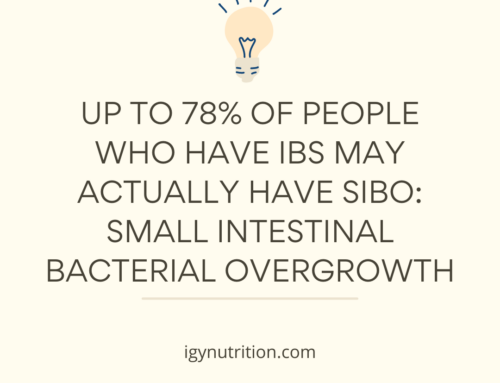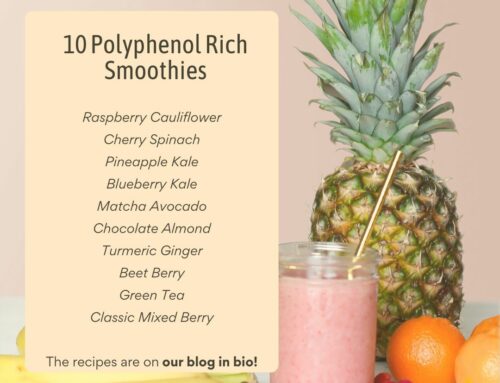Keto. Paleo. Vegan. Vegetarian. Gluten-free, dairy-free, low-carb, carnivore… the list goes on.
With all of the pop diets out there these days, how do you know which ones are healthy and would suit you?
Through this blog series, we’ll teach you how to evaluate diets based on science – no matter what your favorite influencer says about it.
Don’t worry. It’s easier than it sounds! Let’s jump in.
Criteria to Consider
When evaluating diets, you’ll want to check on a few different characteristics, including:
- Fiber intake
- Polyphenol content
- Probiotic / fermented food content
- Micronutrient intake
- Caloric intake
- Fat, protein, and carbohydrate intake
- Electrolyte intake
- Processed food content
- Gluten, dairy, or sugar intake: other triggers
- Price
- Sustainability
- Adherence / lifestyle match
That sounds like a lot – but tracking these criteria is much simpler than it sounds.
Let’s jump in! Today, we’ll look at polyphenol and probiotic/fermented food intake.
Polyphenol Content
Polyphenols are chemical compounds found in plant foods. They reduce inflammation and support gut barrier integrity by fighting off free radicals, making them particularly supportive of gut health (1).
The benefits don’t end there. Polyphenols may also help regulate blood pressure levels and protect against cancer, cardiovascular disease, and type two diabetes (2).
Missing out on enough polyphenol intake would be a mistake.
So which foods contain polyphenols? Polyphenols are found in:
- Fruits
- Vegetables
- Coffee and tea
- Nuts and seeds
- Legumes like beans
- Some grains
Most polyphenols have a distinct color (3). For example, purple carrots and orange carrots contain different polyphenols! For that reason, think about eating the rainbow when it comes to polyphenols.
Coffee is the largest source of polyphenols in the American diet (4). You might think, great, I’m a coffee addict – I consume plenty of polyphenols!
Not so fast. Ideally, you’ll want to consume various polyphenols in your diet. Coffee alone won’t do the trick.
Let’s take a look at some diets and their polyphenol intake.
First up is the carnivore diet, which consists solely of animal-based foods. That means people following the carnivore diet consume zero plant food – and thereby zero polyphenols – unless they include coffee or tea.
On the opposite end of the spectrum, a vegan or vegetarian diet is likely high in polyphenols because of its high plant-based food content – unless it’s too high in processed food.
When evaluating a diet for polyphenol content, see how much plant-based food (both amount and variety) you’d be consuming.
We recommend consuming at least five different plant foods per day for optimal gut health.
Probiotic / Fermented Food Intake
Are you into yogurt? Stinky cheese? Kefir? Kimchi? Kombucha? Sauerkraut? Tofu? Canned fish? Well, then you’re into fermented food – and your gut is likely thanking you for it!
Fermented foods contain probiotics. Probiotics are live microbes that benefit your gut microbiome and overall health (5). Read our blogs on probiotics to learn more about them.
Skeptical of probiotics’ benefits? A recent study published in the prestigious journal Cell examined the effects of fiber and fermented foods on the gut microbiome (5).
The study found that both dietary strategies – consuming lots of plant fiber and consuming lots of fermented food – were beneficial in unique ways.
But as far as microbial diversity goes, regularly consuming fermented foods was even more beneficial than increasing fiber intake.
Probiotics found in fermented food also may (5):
- Support your helpful gut microbes
- Propel microbiome diversity
- Support gut barrier integrity
- Decrease inflammation
- Regulate blood sugar
- Decrease digestive symptoms
Most cultures around the world incorporate at least one staple fermented dish into their diets. The dish you choose doesn’t matter so long as it’s fermented (and low in additives and sugar).
At least some probiotic consumption is vital for a healthy diet. So which sources include them?
- Yogurt (plant-based counts too)
- Kombucha
- Kefir
- Kimchi
- Tofu
- Sauerkraut
- Pickled onion
- Pickles
- Pickled anything
Calling all midwesterners: here’s your excuse to consume dairy during breakfast! Aim for low-sugar options if possible. Including tofu in your egg scramble, having a glass of kombucha or kefir, or adding some yogurt to your smoothie will do the trick.
When evaluating your diet of choice, see if the fermented foods above are permitted. You might be thinking a dairy-free diet is low in probiotics, but not necessarily (low-sugar plant-based yogurts count too)!
Tag us in photos of your polyphenol and probiotic-rich foods on Instagram @igynutrition. Thanks for joining us today, and don’t forget to check out the rest of the blog series to learn about other diet criteria!
References
- Cory, Hannah et al. “The Role of Polyphenols in Human Health and Food Systems: A Mini-Review.” Frontiers in nutrition vol. 5 87. 21 Sep. 2018, doi:10.3389/fnut.2018.00087 https://www.ncbi.nlm.nih.gov/pmc/articles/PMC6160559/
- Williamson G. The role of polyphenols in modern nutrition. Nutr Bull. 2017 Sep;42(3):226-235. doi: 10.1111/nbu.12278. Epub 2017 Aug 15. PMID: 28983192; PMCID: PMC5601283. https://pubmed.ncbi.nlm.nih.gov/28983192/
- https://uncnri.org/2017/09/26/polyphenols-colorful-healthy-plant-compounds-you-may-already-eat-drink/
- https://www.webmd.com/diet/news/20050808/coffee-is-no-1-source-of-antioxidants#:~:text=A%20new%20study%20shows%20coffee,Scranton%2C%20in%20a%20news%20release.
- https://med.stanford.edu/news/all-news/2021/07/fermented-food-diet-increases-microbiome-diversity-lowers-inflammation




